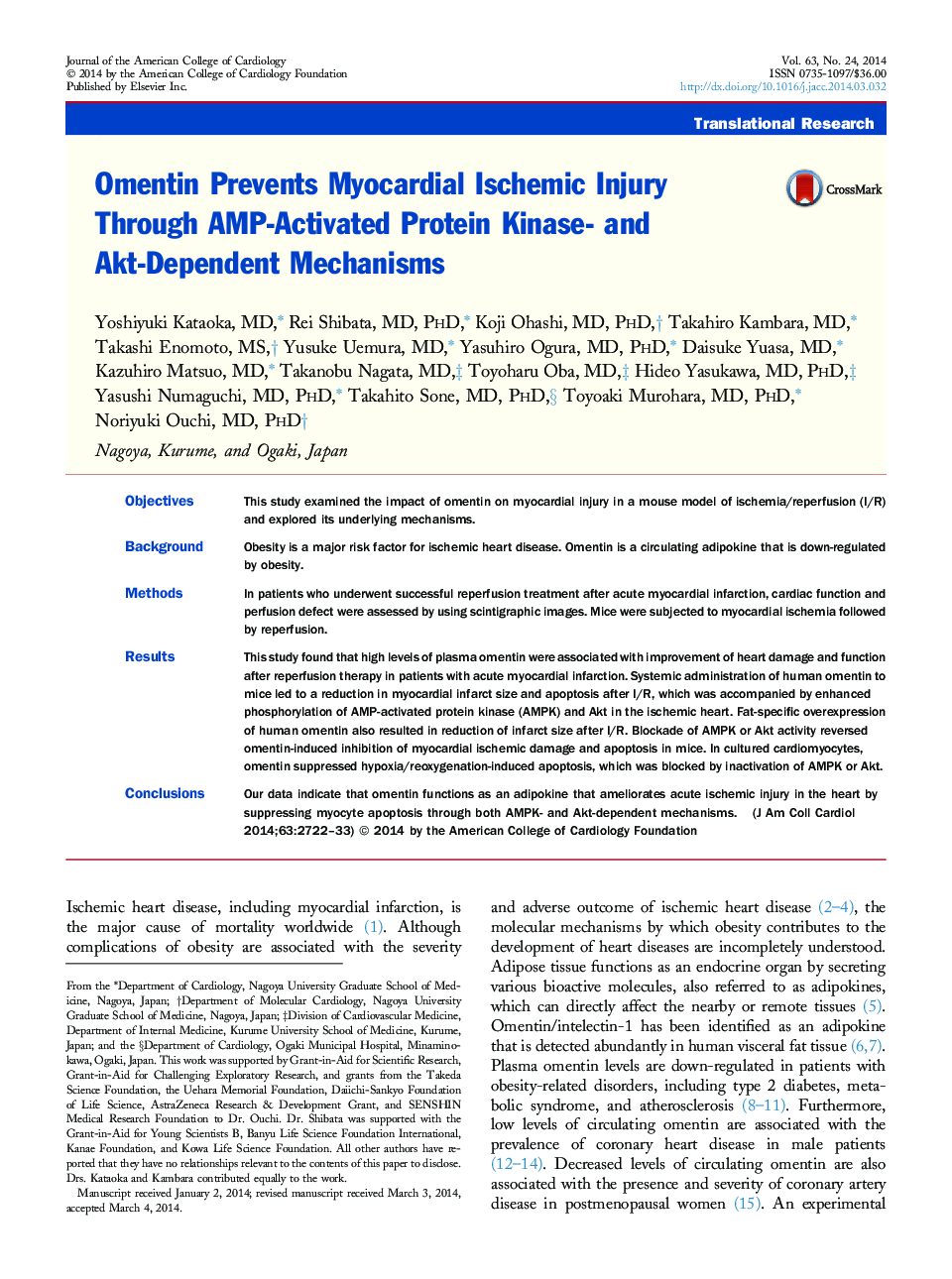| Article ID | Journal | Published Year | Pages | File Type |
|---|---|---|---|---|
| 2944138 | Journal of the American College of Cardiology | 2014 | 12 Pages |
ObjectivesThis study examined the impact of omentin on myocardial injury in a mouse model of ischemia/reperfusion (I/R) and explored its underlying mechanisms.BackgroundObesity is a major risk factor for ischemic heart disease. Omentin is a circulating adipokine that is down-regulated by obesity.MethodsIn patients who underwent successful reperfusion treatment after acute myocardial infarction, cardiac function and perfusion defect were assessed by using scintigraphic images. Mice were subjected to myocardial ischemia followed by reperfusion.ResultsThis study found that high levels of plasma omentin were associated with improvement of heart damage and function after reperfusion therapy in patients with acute myocardial infarction. Systemic administration of human omentin to mice led to a reduction in myocardial infarct size and apoptosis after I/R, which was accompanied by enhanced phosphorylation of AMP-activated protein kinase (AMPK) and Akt in the ischemic heart. Fat-specific overexpression of human omentin also resulted in reduction of infarct size after I/R. Blockade of AMPK or Akt activity reversed omentin-induced inhibition of myocardial ischemic damage and apoptosis in mice. In cultured cardiomyocytes, omentin suppressed hypoxia/reoxygenation-induced apoptosis, which was blocked by inactivation of AMPK or Akt.ConclusionsOur data indicate that omentin functions as an adipokine that ameliorates acute ischemic injury in the heart by suppressing myocyte apoptosis through both AMPK- and Akt-dependent mechanisms.
